Building the foundation for care 2022 Annual Report



Care is one of the most pressing issues of our time, and Caring Across Generations has been building a movement across all ages and backgrounds to transform the way we care. Everyone deserves access to care, but the U.S. falls short in helping families and caregivers thrive.
53M 656K $14.2 /hour
53 million unpaid caregivers in the U.S.
656,000+ people on state waiting lists for home- and community-based services in 2021.
Less than one in four (23%) workers have access to paid family leave and only 40% of workers have access to short-term disability insurance for a longer, serious illness.
Over half of U.S. families live in child care deserts: areas with so few providers or available child care slots that they do not have enough child care capacity to meet the needs of families.
The median wage for direct care workers was just $14.27 per hour in 2021. As a result, 40 percent of this workforce lives in or near poverty and 43 percent rely on public assistance programs to make ends meet.

For more than a decade, Caring Across Generations has been working towards a world in which everyone can care for their loved ones and live and age with dignity. We do this by weaving together three key pieces of our work: fighting for policy change; building power amongst caregivers and those they care for, including aging and disabled people; and investing in cultural strategies that change how we see and value caregiving.
Everyone will give and receive care at some point in their lives, and we must transform how our society sees care, from an individual burden to a shared societal responsibility. Access, affordability and provision of care are tied to so many key issues that demand deep cultural and policy shifts, from disability and gender justice to racial justice and immigrant rights.
The pandemic revealed that our threadbare systems are failing us. Our current care systems rely upon the unpaid work of women, and the underpaid work of Black and immigrant women. We must rebuild our systems to make care jobs into good, life-sustaining jobs for the people who do this essential work, and for those they care for.
We are at a tipping point for change. Thanks to the capacity-building work your generous support has made possible, Caring Across is uniquely positioned to lead the fight for care at the national, state, and cultural levels in 2023.
Building on the momentum of a deepened federal attention on care, especially with the Care Can’t Wait coalition, we will continue to advance a state and federal legislative agenda to expand access to care, especially in the home and community; increase access to child care and paid leave; support family caregivers; and raise wages and create good jobs for care workers.
We are also continuing to lead on the culture change front to transform narratives around caregiving. Through large-scale tactics such as billboard campaigns, creative storytelling partnerships with celebrities and creators in the arts and entertainment industries, and a recent ad campaign that reached millions, our work is inspiring more people than ever and increasing our power in the halls of Congress.
Thank you for making this work possible by continuing to invest in our collective vision. Your commitment creates a more caring future for us all.
Ai-jen Poo Co-founder and Executive Director

In the summer of 2020, Caring Across Generations became a founding partner in the Care Can’t Wait (CCW) coalition, which works to advance three core pillars of care policy: expand access to home- and community-based services (HCBS) and increase pay for care workers, make child care more affordable and accessible, and create the first-ever federal paid leave program The CCW coalition weaves together organizations spanning key care movements—paid leave, worker rights, child care, disability justice, and long-term care— that have been working for decades to achieve progress for their communities.
This collaborative, long-term work to bridge communities and issues within the care economy has seeded a new national conversation about care as essential infrastructure worthy of public investment and prioritization.
In February 2022, we hosted the Time for Action Summit with President Joe Biden, Vice President Kamala Harris, Senate Majority Leader Chuck Schumer and other congressional and policy leaders highlighting the much-needed investment in HCBS in the Build Back Better (BBB) Act. And in March 2022, President Biden made history as the first president to highlight care in his State of the Union Address, as a result of direct work with our campaign and partners.
While care was not included in the Inflation Reduction Act (IRA), the reconciliation bill that ultimately became law, transformational investments in the care economy were included and passed through the U.S. House of Representatives in the Build Back Better Act, and enjoyed unprecedented support, reflecting the historic power built by the coalition.
And the momentum behind the Care Can’t Wait agenda continues to build. Less than six weeks after the IRA passed, Caring Across partnered with Hilarity for Charity (HFC) to send advocates Seth Rogen, Lauren Miller Rogen and Sarah Rafferty to the White House and Congress, where they met with Second Gentleman Doug Emhoff, Senator Bob Casey and Senator Schumer.



Caring Across Generations worked with partners to take the momentum from Care Can’t Wait (CCW) to the states. The Care Can’t Wait in the States framework was designed to leverage federal momentum and lessons toward greater progress at the state level on child care, paid leave and home and community based services. Bringing communities of advocates and caregivers together across these policy priorities has proven valuable at every level where policy is made. Oftentimes, the issues and groups are pitted against one another, especially when budget season arises. Care Can’t Wait in the States seeks to proactively build trust, alignment, coordination and power across organizations and care issues.
Caring Across Generations is also injecting resources, support and visibility to ensure that state-specific solutions to care can be enacted that speak to the needs of the people, and the legislative and cultural climates of the state.

With the support of a prestigious Equality Can’t Wait (ECW) grant, we joined with partner organizations to align existing care movements in Illinois and Georgia, both to build the power to win transformational care legislation and model solutions at the national level. We began this deep work, involving all sections of our campaign — advocacy, organizing, coalition-building, culture change and communications — in 2022, and we will be expanding to two more states in 2023.
Outside of the state work supported by the ECW grant, we are leading innovative campaigns in California, New York and Michigan to highlight care as a key policy issue and create public solutions to people’s care needs. In these states, our campaigns team is building Care Can’t Wait coalitions that all push for both incremental and transformational investments in care, engaging everyone from grassroots organizations all the way to the halls of state capitals.

Formally launched cross-sectoral coalitions in California and Georgia
Hosted a series of care pop-ups in communities across California
Spearheaded a roundtable and community resource fair for hundreds of care advocates in Georgia, attended by state legislators as well as actress and Creative Care Council member Brandee Evans
Released a community-facing report and an academic report on care infrastructure in California, “Let’s Rethink Care in California”

Developed an LTSS strategy framework for Michigan in tandem with Caring Majority Coalition
Commenced coalition-building and legislative research in preparation for the launch of a coalition in Illinois later this year
Hosted a roundtable in Michigan with Rep. Debbie Dingell (MI-06) and state legislators, as well as partner organizations, with nearly 200 participants
Convened partner organizations for the first time in Illinois in a virtual meeting with Sen. Tammy Duckworth (IL) and Rep. Jan Schakowsky (IL-09)
Joined communities across California in care pop-ups to share resources and deepen understanding of the intersections of care and other movement work
Strengthened relationships with 11 key, grassroots organizations across Georgia, California, Michigan, New York, and Illinois through regrants
We have invested in deep research to track attitudes on care and identify where we need to move our audiences in order to change cultural norms.


In October 2022, Caring Across Generations conducted a survey in collaboration with Data for Progress, in which we asked 1,528 likely voters nationally about care. From those results, we created a memo, circulated widely to reporters and members of Congress, to frame media narratives and provide proof points for our policy recommendations.


In 2023, we are conducting national research to create a common language for care, called Care in Common. To ensure consistency of messaging for advocates, voters and policymakers and dismantle barriers to policy change, narrative change, and public buy-in, we will work across the full scope of disability, aging, health care and labor communities to develop common, accessible language for talking to different audiences about care.
Finally, in the wake of the Dobbs decision in June 2022, we are working with a handful of national partners to initiate a Care Narrative project to create greater message coordination across the care community and reinforce partnership with reproductive rights and justice organizations and advocates.
We are working closely with public policy and social science experts to understand what sustainable public solutions to care could look like in practice.
This past year, we invested in training our advocacy team in quantitative methods and data visualization. We have used these new skills to create reports and fact sheets for our state and local partners, used geographic mapping tools to help decision-makers and advocates visualize geographic disparities in care needs, and analyzed disparities related to our care pillars by race/ethnicity, socioeconomic status and gender using national survey data.
At the same time, we have deepened existing relationships and continue to build new partnerships with academic and policy researchers who study care to support our longterm goal of increasing research on LTSS and HCBS.
In November, we released the Home- and Community-Based Services Federal Legislative Update with our coalition partner, Justice in Aging. Together, we utilized this memo to ensure advocates had an understanding of how HCBS policy evolved in 2022 and what to expect in 2023.
At the local level, we are using research to advance our work on Care Can’t Wait in the States. Following the 2022 release of our report, In California, Care Can’t Wait, we are building the coalition infrastructure that will make envisioning Universal Family Care possible, bringing together child care, paid leave and home and community based service advocates together, while helping to drive the statewide campaign for a universal long term care benefit forward. We will also continue to implement the campaign to introduce a LTSS benefit in Michigan. Finally, coalition-building efforts are ongoing in Georgia and Illinois, and we are working towards acquiring four to five legislative champions and developing a legislative framework to propose in each state by the end of 2023.
geography, disability, and other factors. Join us to win these policy changes so all Americans can live at home and age with dignity!
to expand and strengthen HCBS. States have until March 31, 2025, to spend these ARPA funds.
HERE’S WHERE WE’VE BEEN The American Rescue Plan Act (ARPA) This legislation, signed into law on March 11, 2021, provided states with enhanced federal dollars

• Why this matters: These stopgap funds have supported states to weather the pandemic,
address direct care workforce needs, and try new things to improve HCBS. Every state


bipartisan support for improving HCBS. With state re-investment, this was a more than $25
chose to take advantage of this temporary funding. This shows the huge need and
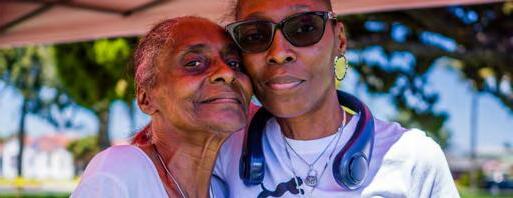
billion investment.
• What was missing: This funding was short-term, states do not have guaranteed funds to
make long-term wage increases and meaningfully expand access to services.









care for loved ones

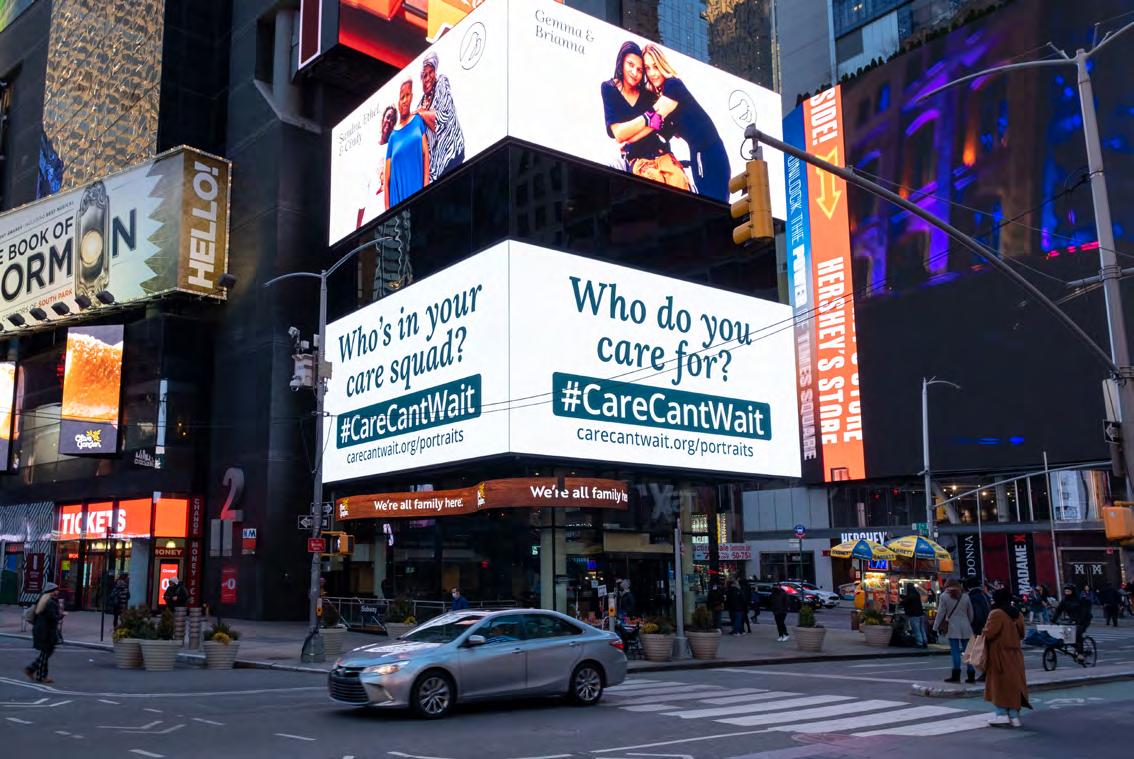

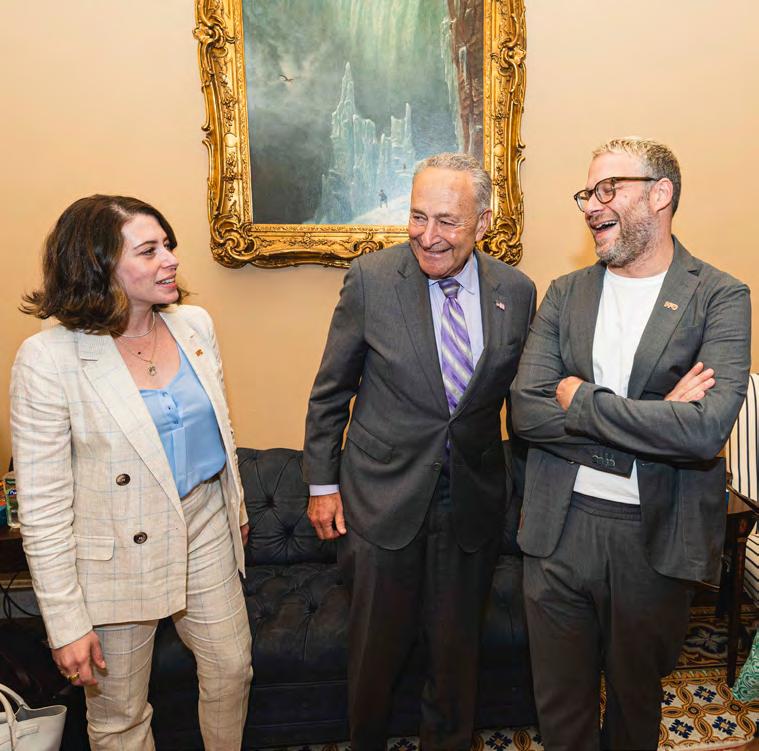




Narrative change is woven into the fabric of any successful policy campaign, but is also a goal in and of itself. In 2022, we scaled our impact through several strategic interventions in culture and narrative spheres.
Early in 2022, we launched the “Portraits of Care” photo and storytelling ad campaign on billboards in Times Square, Washington D.C., Atlanta and other cities to inspire hope and momentum in the fight for care, and launched a digital and video campaign around this work.

We collaborated with renowned agency, Grey Advertising, on an ad designed to shift care from being framed as a personal responsibility to a pressing, social issue that requires collective action and public solutions. The concept of the ad was informed by deep audience and narrative research, and the emotional final video, “Now Is The Time,” deeply resonated with millions of viewers.
We partnered with 10 TikTok creators to share their personal care experiences to reach caregivers in a new medium. This campaign was covered by Wall Street Journal, which highlighted our innovative use of the platform and featured one of our TikTok collaborators.
Our partnership with NBC’s This Is Us was the first multi-platform campaign of its kind to strategically partner with a major network television series to combat our culture’s stigmas around caregiving, dementia and end-of-life planning.
To highlight This Is Us’s groundbreaking portrayal of care, we produced a 30-minute filmed conversation between the show’s cast, executive producer, Ai-jen, and HFC
co-founders Seth Rogen and Lauren Miller Rogen. We executed a robust press and digital distribution strategy that included a piece in The Hollywood Reporter and collaborative posts with the cast, series creator Dan Fogelman and NBC, which organically reached millions of fans.
We also scaled up our pop culture impact campaign work by launching a strategy devoted to increasing visibility for care in mainstream film and TV entertainment by working directly with Hollywood showrunners, writers and producers to change the narrative on care.
As part of this work, we established a new screenwriter salon series and held two events, the first with gender-equity organization Equimundo and the second with Lena’s Waithe’s Hillman Grad Mentorship Lab. We also partnered with The Inevitable Foundation to award a disabled family caregiver and writer a professional development grant.
7.3M
40.5% video completion rate, exceptionally high Performance exceeded projections by 967%
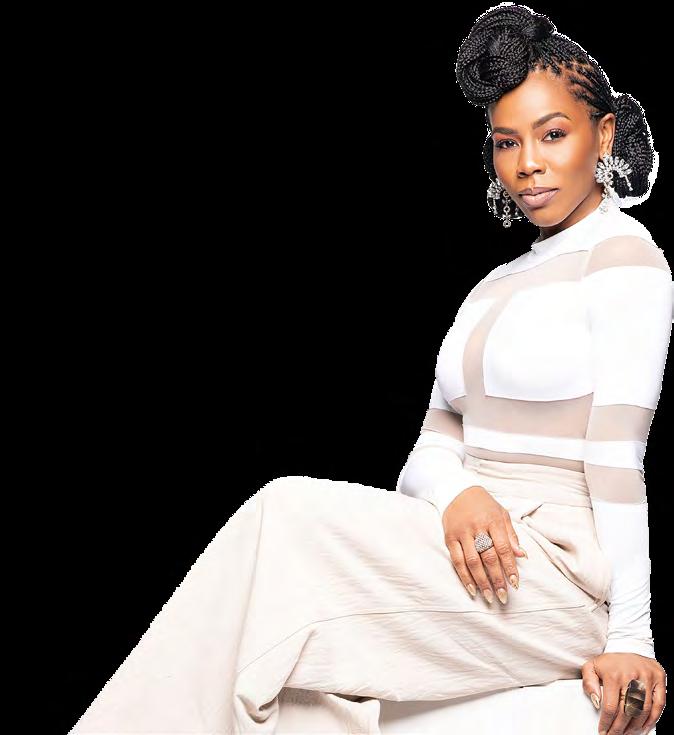
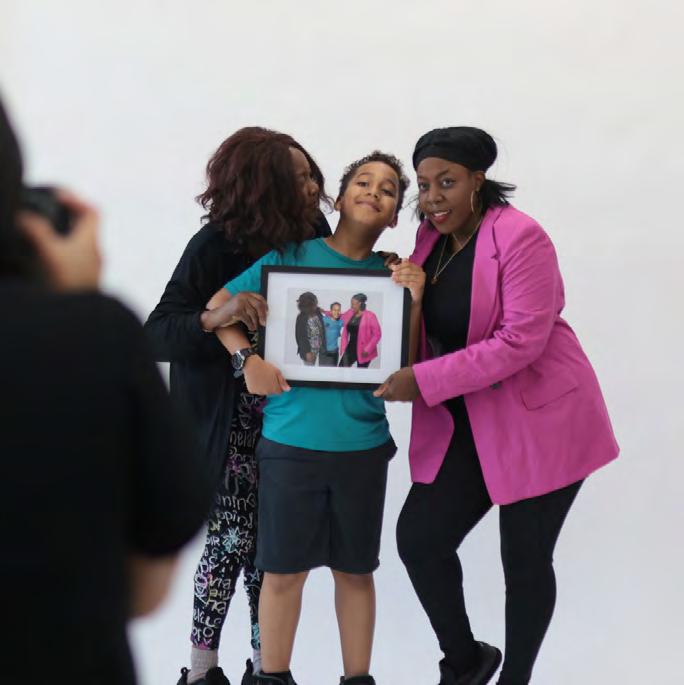
130,873K 2,504
176,769 organic reach
2.1M
5.3 million organic reach 609.92% increase over the 2021 campaign
13.92% engagement rate, vast improvement audience resonance over 2021
Portraits of Care billboard campaign in Times Square and Washington, D.C.
Approximately 10 million impressions across all platforms
2,500,170 Impressions on mobile ads
Digital Campaign
This Is Us. This Is Care. A Conversation.

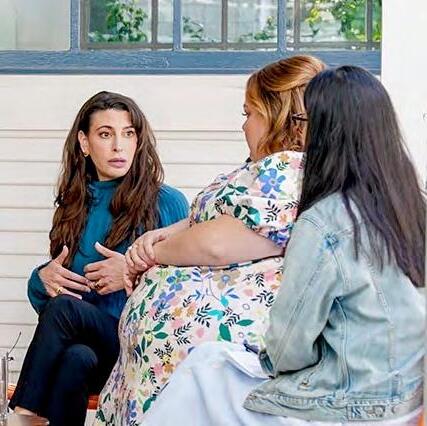
3.4M 55K
1.3M engagements
500+ comments
2.5K replies
“Now is the Time”
Our culture change projects in 2022 reached more than 15 million people online, while our efforts to transform the narratives and cultural norms around care also extend offline. We plan to grow our reach in 2023 through two major initiatives:
From November 2-3, 2023, Caring Across Generations will host the inaugural CareFest convention at the UCLA Luskin Center in Los Angeles. CareFest will bring together cultural influencers and ambassadors, corporate partners and leaders, policy makers and researchers, and caregivers and care consumers to share ideas, strategies and opportunities to move us toward a future where caregiving is valued and supported for the essential role it has in our society and economy.


For the past year, we have been working on a long-term celebrity engagement strategy that will culminate in the launch of our inaugural Creative Care Council in March 2023. Our founding members were invited to join our Council after collaborating with us on various cultural and advocacy activations this year, from a “Dear Hollywood” video featuring Yvette Nicole Brown for screenwriters and producers interested in telling more authentic stories about care on screen, to a well-received Twitter Spaces conversation on Black Women and Care featuring actor Brandee Evans, to Lauren Miller Rogen’s work on the This Is Us campaign.
Brandee Evans, star of the hit TV series “P-Valley” and primary caregiver to her mother who has Multiple Sclerosis and Alzheimer’s disease
Yvette Nicole Brown, actress, comedian, writer, host and caregiver to her father, who has Alzheimer’s


Richard Lui, journalist and anchor for MSNBC and NBC news, and caregiver to his mother and late father, who had Alzheimer’s

Yves Mathieu, actor, model, singer, mental health advocate and volunteer caregiver at a senior center and with LGBTQIA unhoused youth

Lauren Miller Rogen, Hilarity for Charity (HFC) cofounder, actor, writer and former caregiver for her mother who had early onset Alzheimer’s

Seth Rogen, HFC co-founder, actor, producer and former caregiver to his mother-in-law

Megan Thee Stallion, rapper, songwriter and former caregiver to her mother, who died in 2019 after battling brain cancer

Bradley Cooper, actor, director, producer, and former caregiver to his late dad, who had lung cancer

The Care Fellowship is a leadership development program that cultivates the advocacy and communications skills of a multiracial, intergenerational cohort of family caregivers. The program draws upon the Fellows’ innate expertise, and is designed to support caregivers to use their lived caregiving experiences to inform, advocate for, and advance care policy change.
In 2023, we are again recruiting with a focus on underrepresented caregiving experiences, including Black and other people of color, low income, disabled and LGBTQ+ caregivers, and are increasing our care fellow class to 100 caregivers. We are continuing our state-based Care Fellowship programs, launched in 2022, in California, Georgia, Illinois, and Michigan. We have increased staff capacity to continue to expand programming and support for the fellowship, and we are developing a fellowship alumni network to continue to collaborate with our former fellows.
Our Care Fellows are changing the way caregiving is seen, valued, and supported in the United States. They have led our Get Out the Vote efforts, advocated for care issues directly with lawmakers, and have been featured in high profile media.
In 2023, we are continuing our work through Caring Across and in the Care Can’t Wait coalition, adjusting our strategies to align our federal, state and local goals to advance care policy change wherever it can be made.

As a part of our Care Can’t Wait in the States program, we are working in five states— California, Georgia, Illinois, Michigan and New York — to support and continue to build coalitions to advance state-level victories for the three pillars of care. These successes will improve the lives of caregivers while sowing the ground for federal care policy victories.
While we remain focused on our long-term federal goals—including a 12-week federal paid leave program, the passage of the HCBS Access Act, a national policy to support longterm services and supports, universal pre-K,
and accessible and affordable childcare—we are also working to pass more immediate, incremental changes that will build access across the three pillars of care. These include bipartisan legislation to increase wages for direct care workers, expanding federal paid leave policies, and working to weave new safety nets for children, disabled people and older adults in light of the end of American Rescue Plan Act care funding.
Finally, we are building our internal frameworks and increasing our capacity to better support the Care Can’t Wait coalition. This next year, we will be supporting and aligning the coalition around key care narratives, messaging and campaigns to ensure that care is the seminal issue of the 2024 election cycle and a focus of the next Congress.
Our increasingly stable financial structures and infrastructure continue to fortify our work. In 2022 we maintained an operational budget of $10 million on a sustained year-to-year trajectory of growth. We are expanding our financial resource model to include a donor relations program and thoughtful engagement with potential corporations. Our increased financial resilience, as well as the multiyear commitment we received from the Equality Can’t Wait challenge grant, has well-positioned us to further our mission.
81.17% Program
5.55%
13.28%
Administration
We are immensely grateful for the core supporters who make our work for family caregivers, care workers, and care recipients possible. We are proud to highlight a few core champions who backed our work in 2022.

Care Champions are a committee of dedicated volunteers and a critical piece of building momentum and enthusiasm for systems of care anchored in public support. By helping us diversify our sources of funding and identifying individuals willing to anchor our work, we ensure that reach continues to reflect the full breadth of need and shared values that will ensure our campaign is successful in obtaining equitable access to care for all.
Our work is driven by institutional funders who are aligned with our core values and committed to community-driven change.
• Blue Shield of California Foundation
• Care for All with Respect and Equity (CARE) Fund
• Ford Foundation
• General Service Foundation
• Hill-Snowdon Foundation
• John D. and Catherine T. MacArthur Foundation
• May and Stanley Smith Charitable Trust
• Metta Fund
• Pivotal Ventures
• Pop Culture Collaborative
• Ralph C. Wilson, Jr. Foundation
• Robert Wood Johnson Foundation
• Stupski Foundation
• Urban Institute
• Women Effect Fund